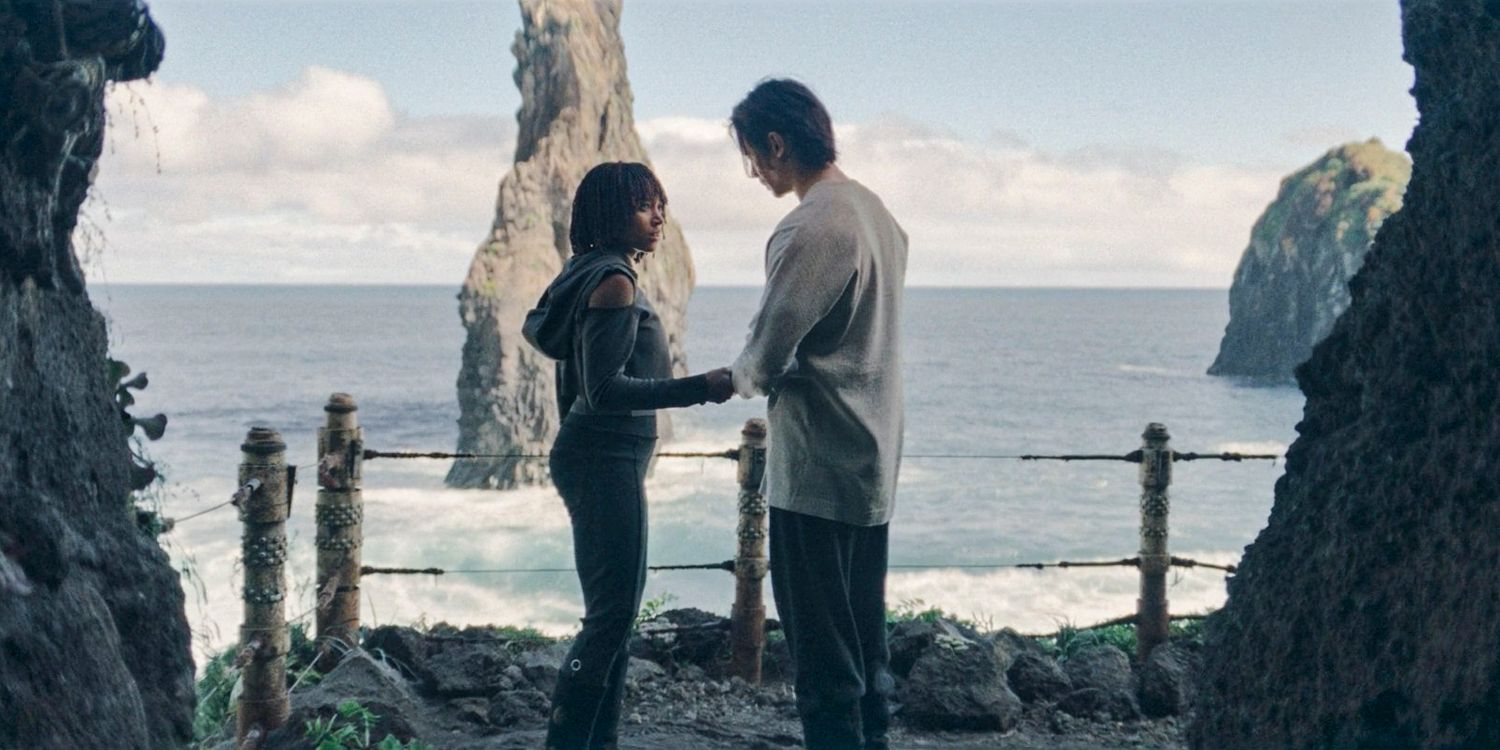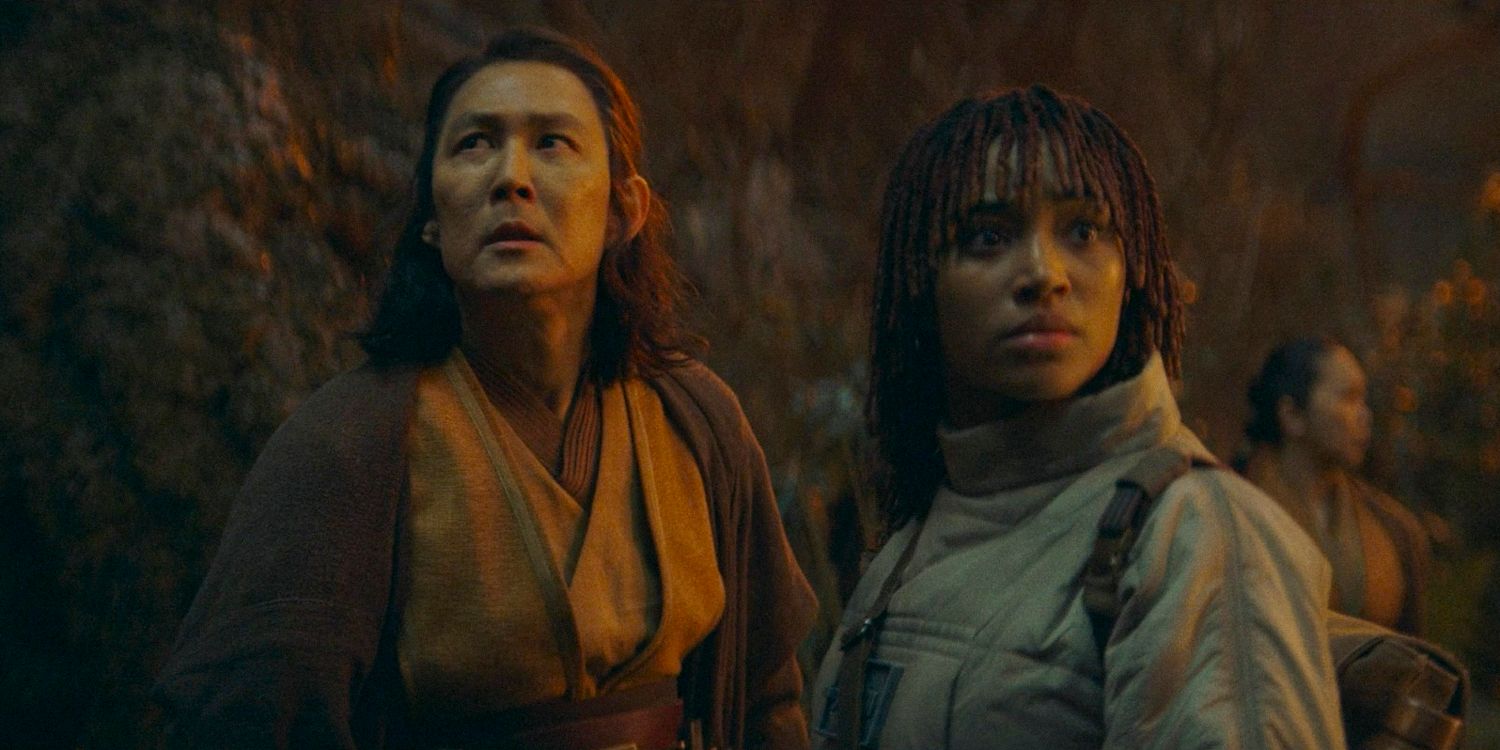
The Acolyte Just Gave Me A Horrible Theory About What Happens To Jedi Dropouts
Warning! This post contains SPOILERS for The Acolyte episode 6.
Summary
- Osha’s unique position as a Jedi dropout raises questions about her connection to the Force and the Jedi Order’s potential involvement.
- Qimir’s comment about Osha’s strength in the Force suggests a deeper connection between Master and Padawan, possibly manipulated by the Jedi.
- Osha’s inability to connect to the Force raises concerns about consent and violation regarding the Jedi Order.
Star Wars: The Acolyte has inspired a horrific theory about what happens to the Jedi’s dropouts after they leave the Order. Osha’s (Amandla Stenberg) position within The Acolyte’s story is unique. She’s one of a few main characters who have chosen to leave the Jedi Order of their own volition (or at least, that’s what she believes). Previously, Ahsoka Tano left the Jedi Order after being falsely accused of treason and murder, as her trust in the Jedi Order and what they stood for was completely shattered. We don’t know exactly why Osha left the Jedi Order, though.
Did she feel like she didn’t belong? Did she no longer believe in the Jedi’s way of life? It seems unlikely, as, for now, she still vehemently believes that Master Sol (Lee Jung-jae), and by extension, the Order, are a beacon of light within the galaxy. We need to know why Osha left, but arguably, the more important question is why she has such difficulty reaching for the Force. She trained with the Jedi for years. She was strong and talented. What happened? Did she cut herself off without even realizing it? Or did the Jedi do something much more sinister?
Related
Star Wars: The Acolyte Episode Guide – Cast Members, Biggest Takeaways & Easter Eggs
Here’s everything you need to follow along with Star Wars: The Acolyte, from references and trivia to main takeaways from each new episode.
Qimir Claimed Master Sol’s Strength In The Force Belongs To Osha
We know that Jedi can cut themselves off from the Force – to an extent, at least. Obi-Wan Kenobi did so while hiding on Tatooine, only reaching for his power again when a young Princess Leia was in imminent danger. That doesn’t necessarily explain Osha’s predicament, however. Osha believes that her power with the Force has waned because of disuse. When she was trying to escape the prison transport, she couldn’t use the Force to save herself, despite being in a high-stress situation similar to Obi-Wan’s.
That should support Osha’s theory, but it doesn’t make sense. Force-sensitive beings are inherently connected to the Force. They can ignore it, or they can be unaware of it, but that connection shouldn’t just disappear – not unless something (or someone) is blocking that connection somehow.
In The Acolyte episode 6, “Teach/Corrupt,” as Qimir (Manny Jacinto) subtly tries to entice Osha into becoming his pupil – and perhaps something more, too – they have an interesting conversation about Osha’s power. Osha says that Master Sol’s “strength in the Force is very powerful.” Qimir’s response is unusual. He says: “You think that’s his strength? That’s your strength in the Force, Osha. Someone ought to teach you that.” Of course, an argument could be made that Qimir is simply trying to create distance between Osha and Sol for his own gain, but his wording raises more questions.
Is It Possible The Jedi Use The Master-Apprentice Bond To Neutralize Failed Padawans?
How can Master Sol’s strength be Osha’s? Just before that moment, Qimir muses about the special bond between a Master and their pupil. We know it’s unlike any other for the Jedi. It’s a deep connection built on years of trust, loyalty, and understanding. Master and Padawan both learn from one another and gain strength from one another. What if that was literal, though? What if the bond between a Master and their learner wasn’t just educational and emotional, but a literal bond through the Force as well? One that can be manipulated when the Jedi deem it necessary?
Star Wars has revealed very little about what happens to a Jedi who leaves the Order. When Ahsoka left, the Jedi were at fault. Though her departure was tragic, they didn’t have the time or the resources to worry about what she was going to do next, and Ahsoka left her lightsabers of her own accord. The Acolyte’s creator, Leslye Headland, has revealed, however, that normally, when a Padawan decides to leave the Jedi, a ceremony takes place during which the Padawan voluntarily returns their lightsaber to the Order.
This makes sense and isn’t necessarily unnerving. A lightsaber is the Jedi’s symbol, after all – it represents hope and peace in the galaxy. If a Padawan is no longer a Jedi, they should no longer carry such a symbol. What if that isn’t the only thing that happens, though? Qimir’s odd comments and Osha’s broken connection with the Force got me thinking. Would the Jedi want younglings, teenagers, and young adults who are powerful with the Force running around without being tethered to the Order and the Jedi Code?
Would the Jedi want younglings, teenagers, and young adults who are powerful with the Force running around without being tethered to the Order and the Jedi Code?
Presumably, most of the learners who decide to leave the Jedi Order do so because they decide they can’t live without love or family. Those reasons are all perfectly valid – the Jedi Order’s restrictions aren’t for everyone. But the Jedi must also be worried about those learners who left to pursue unencumbered freedom, the ones who disagree with the Jedi’s very way of life and political decision-making. While I can understand this point of view, I hope the Jedi haven’t gone to extreme lengths to keep them from turning to the dark side.
What if, to prevent the creation of more fallen Jedi – the way the Sith once rose to power – the Jedi somehow “absorb” a Padawan’s connection to the Force through their bond with their Master? Though unusual, such a scenario would explain why Qimir believes Sol’s strength comes from Osha’s, and why Osha seemingly isn’t able to connect to the Force at all. Neutralizing a Jedi drop-out’s power might seem worthwhile, but it also raises issues of consent and violation, something which The Acolyte has been exploring with the coven storyline. What right do the Jedi have to dictate someone’s connection to the Force?

Related
Star Wars’ High Republic Era Has Made Me See The Jedi In A Whole New Light
The High Republic era has not only expanded our understanding of the Jedi Order but showed us how the rest of the galaxy viewed the Jedi as well.
This Shocking Theory Would Fit Perfectly With Star Wars Lore
This theory, though shocking, would fit perfectly within Star Wars lore. Ahsoka’s departure might very well be the exception. She may have chosen to leave her lightsabers, but her Master was Anakin Skywalker. All he ever did was teach her how to stay alive. It’s extremely unlikely he would have ever agreed to take Ahsoka’s power away somehow – during a galactic war, no less – no matter what the Jedi Council said. Sol is not Anakin, however.
Sol may be more emotionally open and vulnerable than other Jedi, much like Anakin, but it seems to me that he would also do anything to protect the Jedi Order as a whole, even if that meant crossing a dangerous line and taking away someone’s right to choose – the show’s first flashback episode hinted as much, after all. If Sol believed that taking Osha’s power away would keep both her and the Jedi Order safe, I have no doubt that he would do it in a heartbeat.
Additionally, if we take a closer look at the genocide of the Jedi and all the storytelling that surrounds it, it becomes clear that Palpatine was never worried about hunting down and killing any former Jedi Padawans and younglings. He wanted to eradicate surviving Jedi, he wanted to eliminate Ahsoka Tano, and he wanted to kidnap Force-sensitive children before any remaining Jedi could recruit them to their cause. Former Jedi never seemed to be an issue, though. If Palpatine knew that the Jedi took these former learners’ powers away, why should he ever be worried about them?
The Acolyte and Star Wars: The High Republic as a whole – the High Republic era is set a few centuries before the Star Wars prequel trilogy – give audiences a glimpse of a different side of the Jedi. They were more open during this time, and arguably at the height of their power. But the cracks were starting to show.
It seems they were forcing their beliefs on other Force-users; they were becoming too politically embroiled in the galaxy’s issues, and they had difficulty sensing the dark side because they didn’t want to believe it could cause them any harm. Stealing a Padawan’s connection to the Force would be an extreme measure if this theory turns out to be true, but it also sadly makes sense with everything we’ve learned about the Jedi so far in Star Wars as a whole and Star Wars: The Acolyte.
New episodes of The Acolyte premiere Tuesdays exclusively on Disney+.




